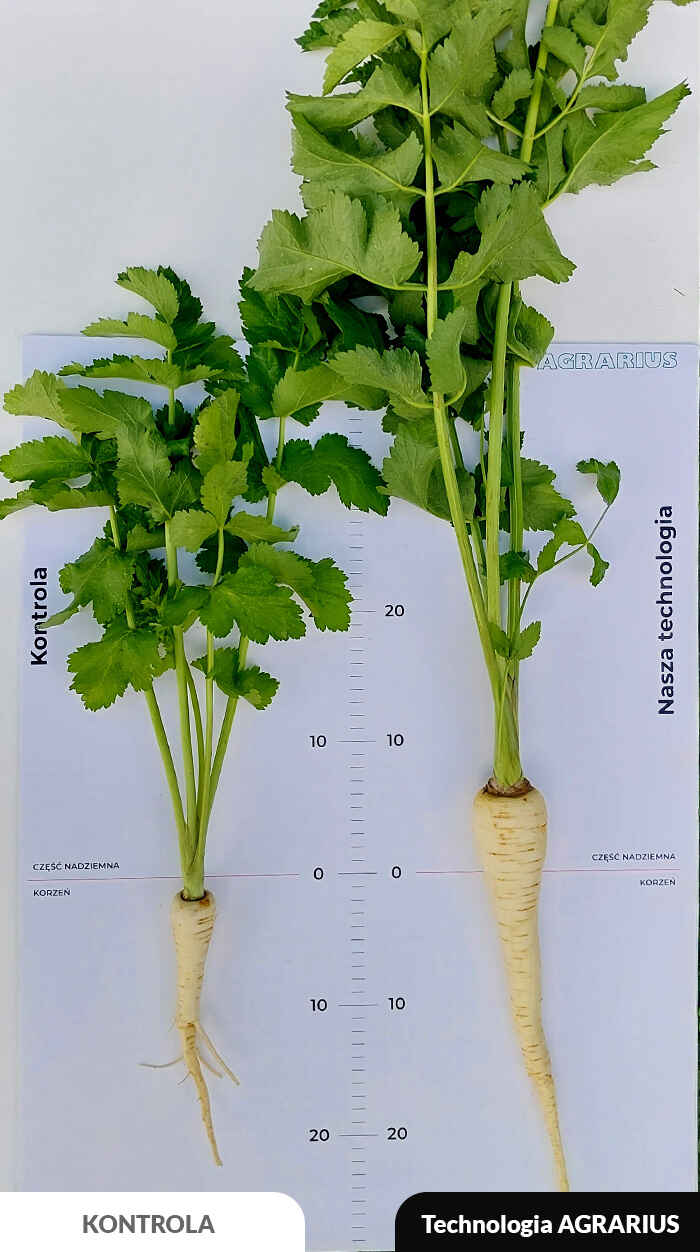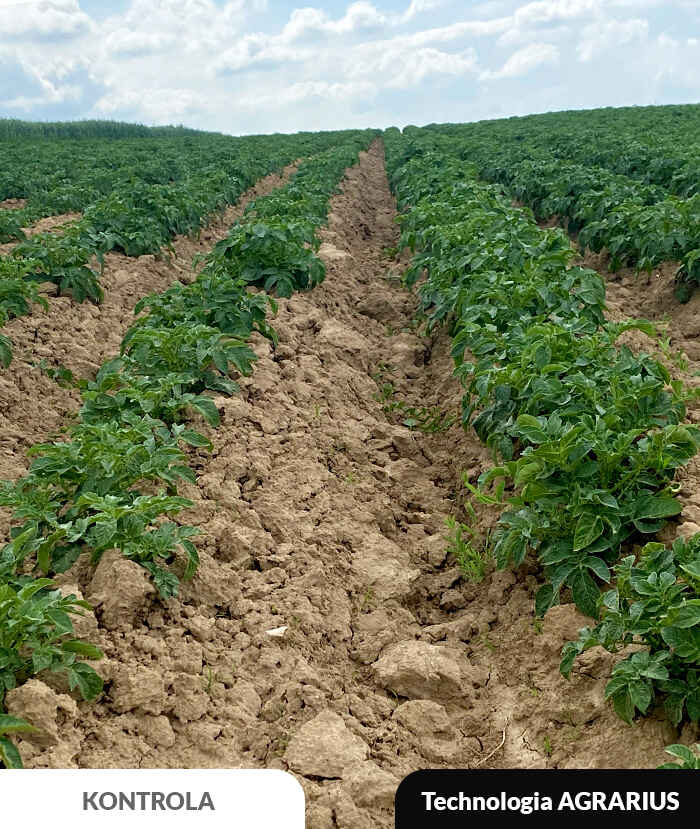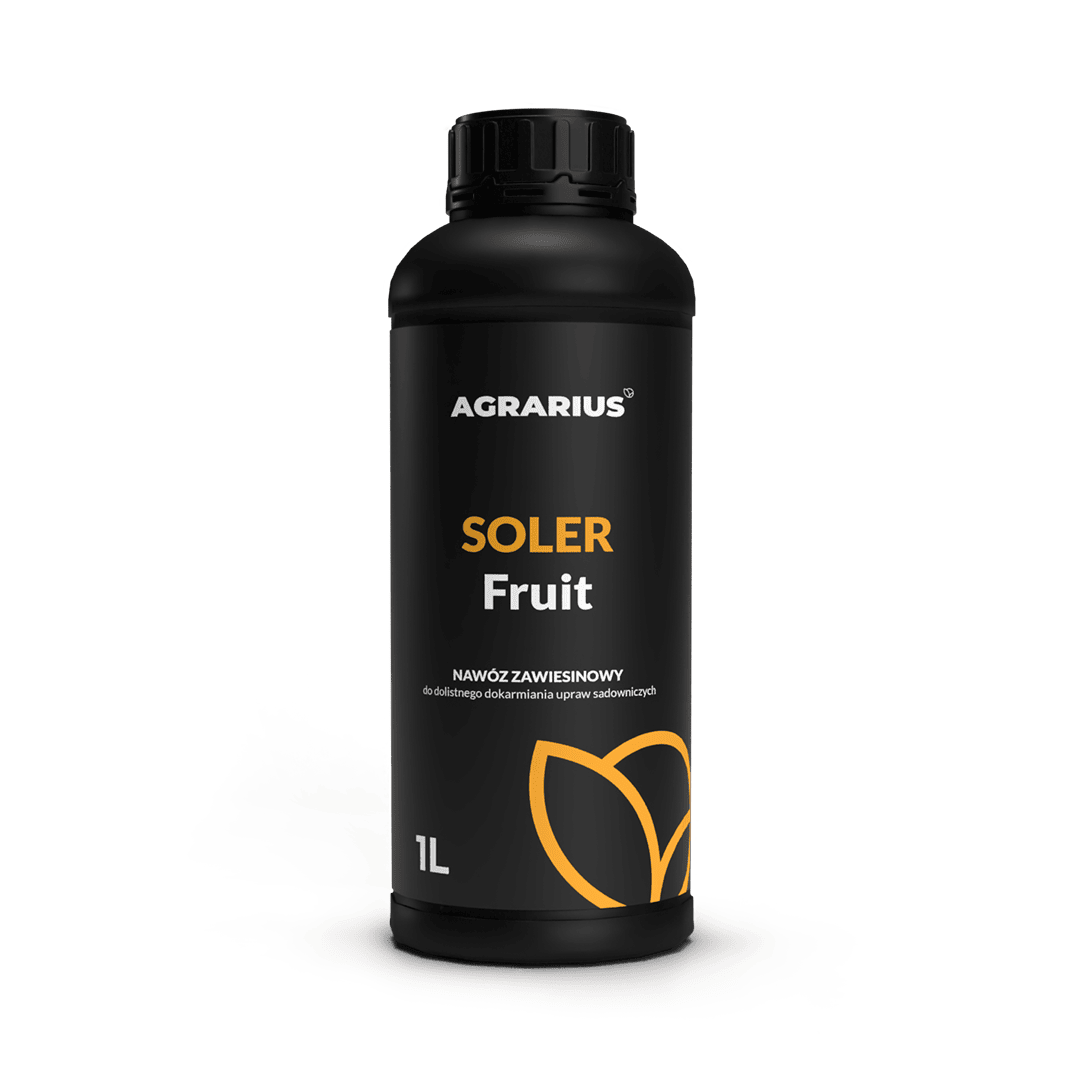bi complex max
Poprawia strukturę gleby

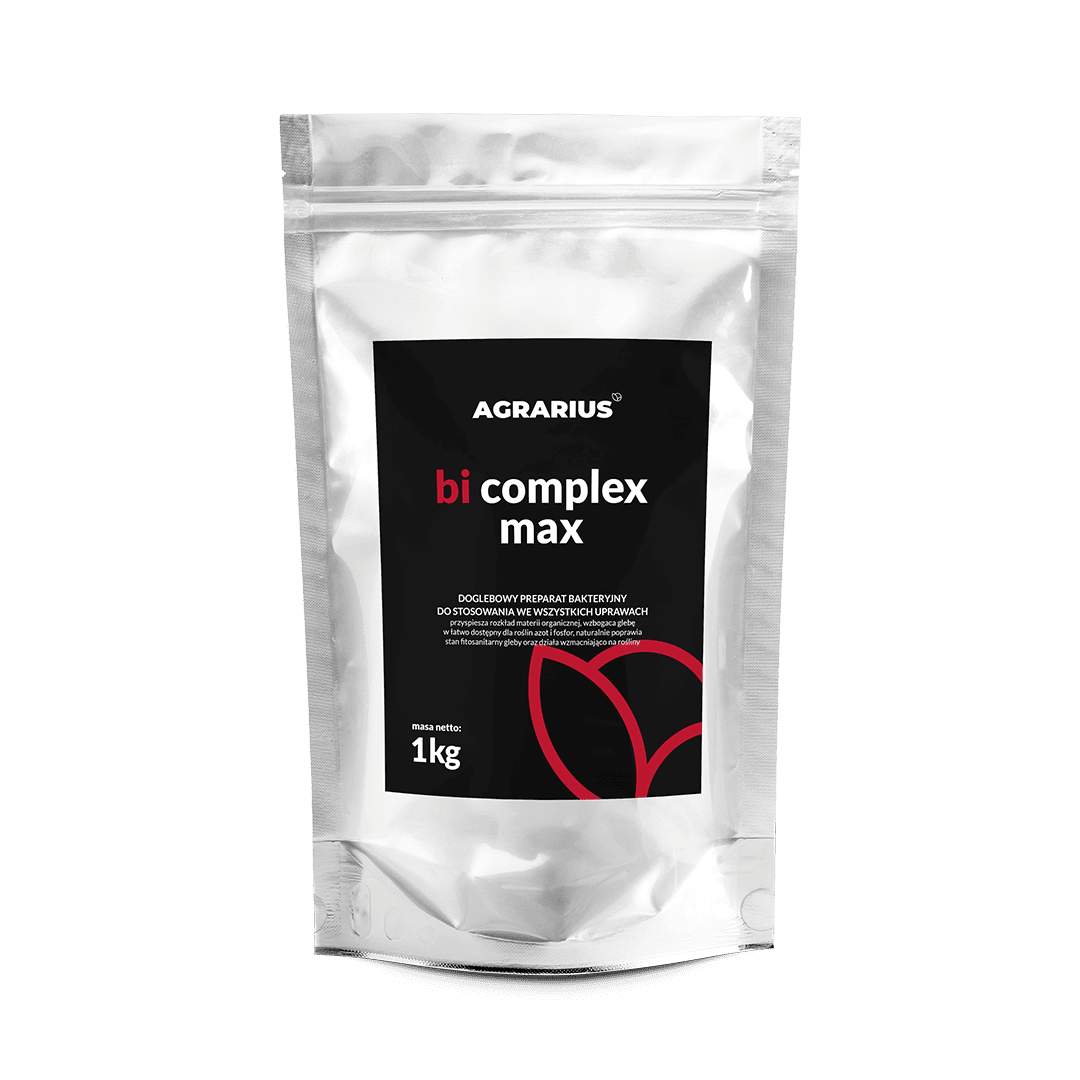
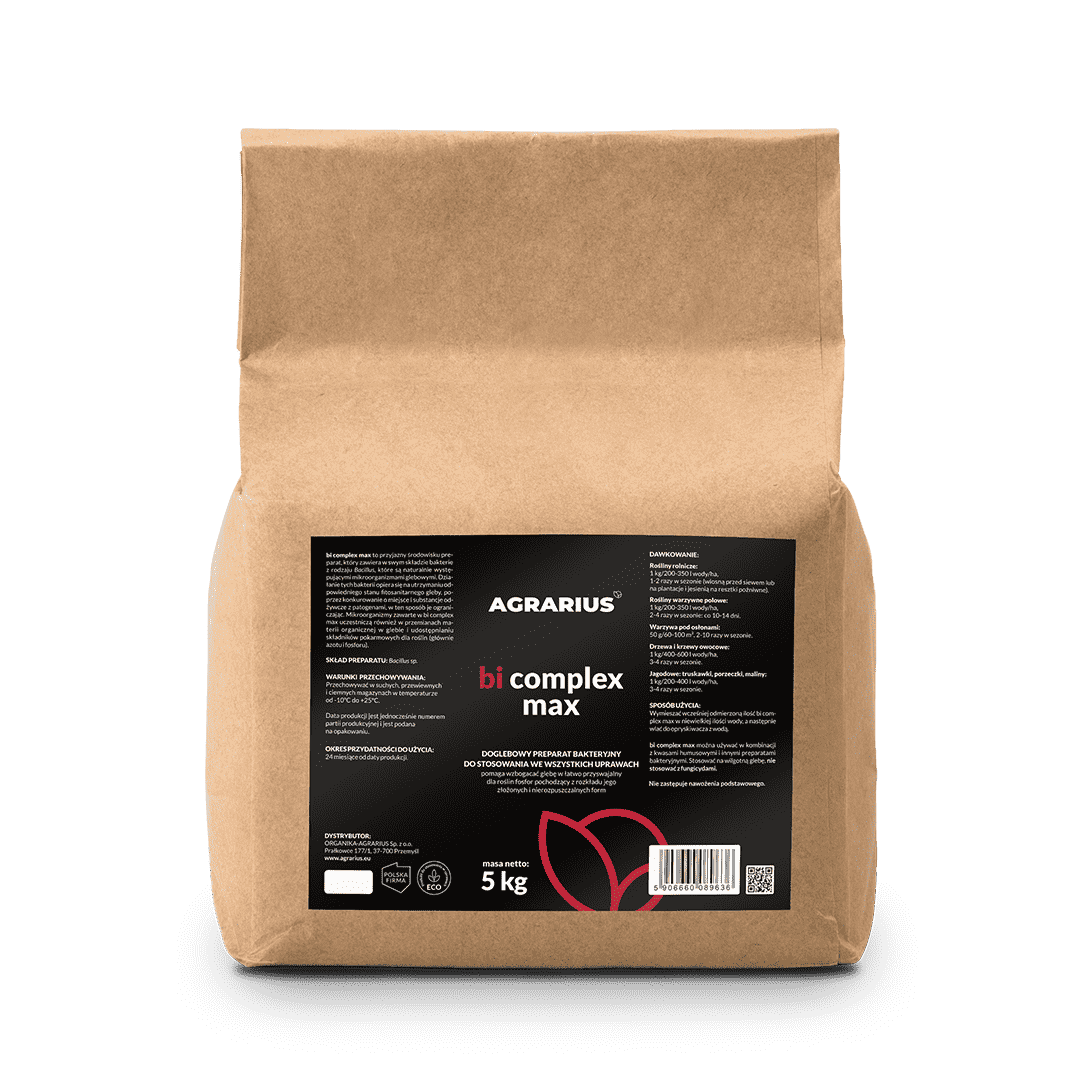
Zalety stosowania:
Opis produktu:
Preparat bi complex max zawiera skoncentrowane mikroorganizmy ryzosferowe, które przyspieszają wzrost roślin, ułatwiają zawiązywanie owoców, poprawiają odporność upraw i pozytywnie wpływają na wielkość plonu. Mikrobiologiczny preparat bi complex max polepsza stan fitosanitarny w obrębie korzeni i wzmacnia rośliny.
Środek bazujący na starannie wyselekcjonowanych pojedynczych bakteriach Bacillus ułatwia rozkład resztek organicznych i wspomaga zasilanie roślin minerałami. W produkcie występują szczepy bakterii Bacillus subtillis, Bacillus megaterium i Bacillus azotofixans – korzystnych mikroorganizmów glebowych, które tworzą dla roślin dobre warunki wzrostu i rozwoju. Baterie Bacillus są w naszej strefie klimatycznej bardzo popularne. Te saprofity naturalnie rozkładają związki organiczne roślinnego pochodzenia, a szczególnie pektyny i węglowodany. Bakterie Bacillus wytwarzają śluzy wpływające na zwiększenie wilgotności gleby w obrębie systemów korzeniowych roślin oraz pokrycie korzeni specjalnym filtrem ochronnym, który zabezpiecza je przed niekorzystnym wpływem suszy i stabilizuje koloidy glebowe.
Bakterie Bacillus subtillis przyczyniają się do redukcji chorobotwórczych bakterii i grzybów oraz znaczącej poprawy fitosanitarności upraw i struktury gleby. Te bakterie szybko się namnażają i konkurują o miejsce oraz pokarm z innymi mikroorganizmami, przez co naturalnie je eliminują, a przy tym nie zaburzają bytności innych korzystnych drobnoustrojów glebowych.
Bakterie Bacillus megaterium zawarte w preparacie bi complex max przyczyniają się do poprawy struktury gleby poprzez wspomaganie rozkładu uwstecznionych i związanych form fosforu, w tym fosfonianów i fosforynów oraz przekształcaniu ich w fosfor o dobrej dostępności dla roślin. Bakterie Bacillus megaterium pozwalają pozyskać nawet 20-40 kg fosforu w czystej formie na 1 ha uprawy i znacząco poprawić jakość plonu.
Bakterie Bacillus azotofixans usprawniają obiekt azotu w glebie i ułatwiają przyswajanie go przez rośliny, dzięki czemu uprawy kumulują mniej azotynów i azotanów.
Mikroorganizmy zawarte w preparacie bi complex max udostępniają roślinom odpowiednie dawki fosforu i azotu – składników mineralnych niezbędnych w całym cyklu życia roślin, począwszy od tworzenia zielonej masy, po kwitnienie i owocowanie. Azot i fosfor biorą udział w procesach fotosyntezy, przemiany materii oraz tworzenia substancji zapasowych i białek. Prawidłowa dostępność tych minerałów jest kluczowa dla powodzenia uprawy.
| UPRAWA | DAWKOWANIE | STOSOWANIE |
|---|---|---|
| Rośliny rolnicze | 1 kg/200-350 l wody/ha | 1-2 razy w sezonie (wiosną przed siewem lub na plantacje i jesienią na resztki pożniwne) |
| Rośliny warzywne polowe | 1 kg/200-350 l wody/ha | 2-4 razy w sezonie: co 10-14 dni |
| Warzywa pod osłonami | 50 g/60-100 m2 | 2-10 razy w sezonie |
| Drzewa i krzewy owocowe | 1 kg/400-600 l wody/ha | 3-4 razy w sezonie |
| Jagodowe: truskawki, porzeczki, maliny | 1 kg/200-400 l wody/ha | 3-4 razy w sezonie |
Nie zastępuje nawożenia podstawowego.
Dodatkowe informacje:
Preparat bi complex max do poprawy struktury gleby powinien być stosowany na wilgotną ziemię, najlepiej razem z kwasami humusowymi, które pozytywnie wpływają na proces namnażania się bakterii zawartych w produkcie. Produktu mikrobiologicznego bi complex max nie należy stosować w czasie suszy, w słoneczny dzień ani razem z chemicznymi preparatami, szczególnie z fungicydami.
Produkt ten jest szczególnie polecany do stosowania wraz z fertygacja w uprawach ogrodniczych polowych, tunelowych i szklarniowych (jako dodatek do podłoży inertnych).
Nawóz został dopuszczony do stosowania w uprawach ekologicznych przez Instytut Uprawy Nawożenia i Gleboznawstwa (NE/719/2023).
Napisz do nas i wyślij wyniki swoich doświadczeń.
